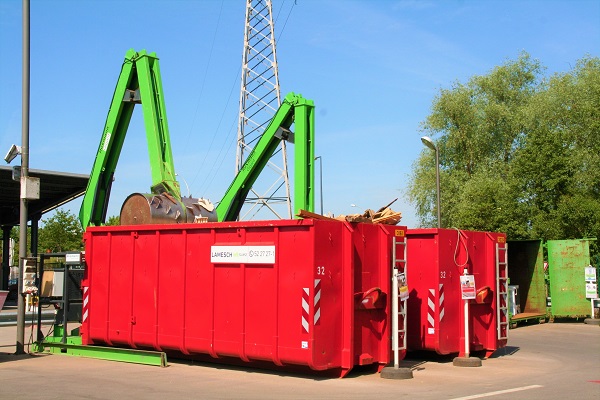 SIVEC (Syndicat intercommunal à vocation écologique), Schifflange;
Credit: MECDD
SIVEC (Syndicat intercommunal à vocation écologique), Schifflange;
Credit: MECDD
Luxembourg's Ministry of the Environment, Climate and Sustainable Development recently presented a new package of laws known as "Offall- a Ressourcëpak" (waste and resources package).
On Wednesday 27 April 2022, the Chamber of Deputies (Luxembourg's parliament) passed five laws with the main objectives of preventing and reducing waste. Based more particularly on the principles retained in the government's "zero waste" and "circular economy" strategies, the laws lay the groundwork for a redefinition of waste as a resource. A sought-after aim of the reform is to reduce the consumption of single-use items while promoting multiple-use products.
The law package not only sets the general framework for waste management in Luxembourg, but also provides specific provisions for various very specific product flows. In this context, extended producer responsibility schemes will play a fundamental role in ensuring proper management of products and waste. In this regard, minimum operational requirements to increase their efficiency and performance are set.
The law package responds to the request of members of the public (consulted in four thematic workshops and six general workshops), namely to promote the reuse of items and thus extend the time of use of products, through its various provisions.
Amendments include the following:
- The cleaning costs generated by littering will be borne by the producers of certain products (tobacco product filters, packaging, balloons, wipes, etc.) and no longer by the community. At the same time, the maximum amounts for fines will be revised upwards, capped at €1,000 instead of €250;
- In the future, parties and public events must be organised in such a way as to produce as little waste as possible. A large proportion of single-use products will therefore be prohibited at such events. A first deadline will be set as 1 January 2023, particularly targeting certain single-use plastic products;
- From 1 January 2024, residents will have to communicate their wish to receive commercial advertisements in the post, i.e. switching from an "opt-out" to an "opt-in" system. In addition, the placing of advertising material on vehicles will be prohibited with the entry into force of the law;
- From 1 January 2023, restaurants will be required to serve all on-site consumption in reusable containers;
- From 1 January 2025, take-out or delivered meals must be offered in reusable containers and have a "take-back" system. In order to implement this obligation, a roadmap will have to be drawn up by 1 January 2024 by those in charge of the products concerned.
- The packaging law also creates the legal basis for implementing a deposit system in Luxembourg. The implementing provisions must be established by means of a Grand-Ducal regulation;
- From 1 January 2024, municipalities will have to inform citizens about the quantities of waste they have produced;
- In order to facilitate the public's access to recycling services, the resource centres should operate as a harmonised network;
- Finally, the waste law provides for a definitive end to the landfilling of municipal waste by 2030.
Ongoing changes
During the almost two-year legislative process, the draft laws were adapted to take into account certain feedback from stakeholders. For example, the provision on fruit and vegetables to be displayed without packaging made entirely or partly of plastic material has been eased and the entry into force of the provision has been postponed to align as much as possible with the provisions applicable in France. In addition, the obligation to display a price for service packaging has been changed to take into account the remarks of the various sectors and actors. This provision will allow the customer to decide whether he / she wishes to use service packaging such as bags, cups and containers.
Implementation
According to the Environment Ministry, the implementation of the law package will require considerable efforts making a common approach shared by all the stakeholders concerned imperative. The development of Grand-Ducal regulations as well as implementation guides will therefore have to be done in close collaboration with these actors. To this end, discussions will be initiated in the coming weeks. At the same time, various studies guiding the implementation of the law package are underway.








